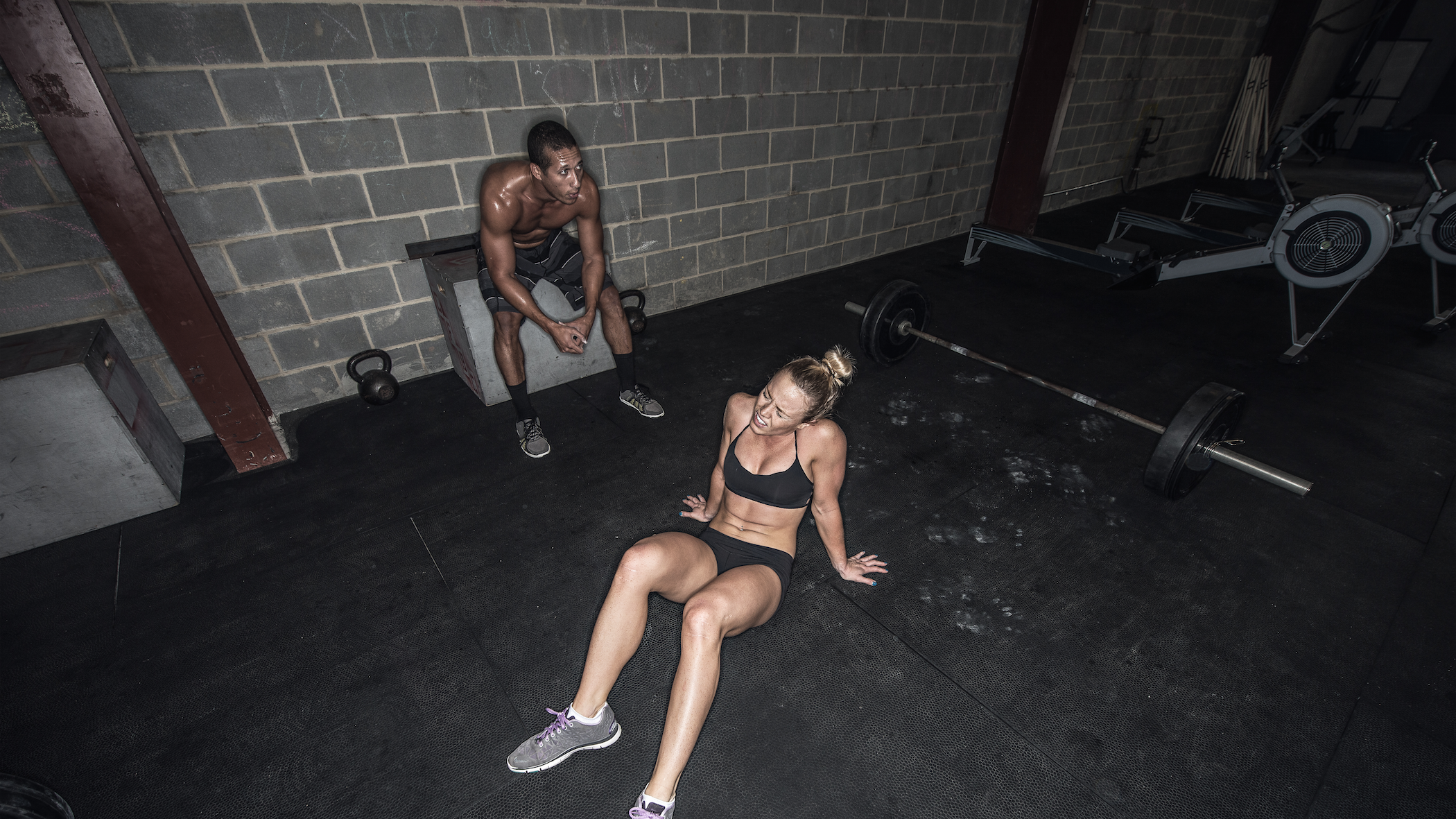Finding "Fit": My Attempt to Not Feel Like a Fraud at the Gym
When you're in that awkward place between the exercise addicts and the anti-workout crowd.

I am, by most standards, an "in shape" person. I work out about five days a week, I was a competitive swimmer for 12 years, and recently, I completed my first half marathon.
But I live in the same world you do—the one with all the Instagram fitness stars and the SoulCycle groupies—women who make working out seem, sometimes, off-puttingly exclusive. Or even annoyingly trendy.
As I tried the latest exercise fads, there was a part of me that felt like a fraud in the world of kettle bells and barre classes. I wasn't the poster girl they all seemed to want to be. I didn't have the outfits, or the bubbliness. My body didn't look like theirs. And my instagram followers didn't care that (or if) I went to the gym.
But at the same time, with body-positivity (thankfully) on the uptick, I had friends proudly joking about not remembering the last time they set foot in a gym—or even brazenly judging women who wanted to eat healthy.
I was left somewhere in the middle, stuck between the anti-workout crowd and the fitness diehards.
Women who make working out seem, sometimes, off-puttingly exclusive. Or even annoyingly trendy.
When I started training for my half marathon, I began to find a middle ground. I loved the training because I was working toward a specific athletic goal, not a set weight or dress size. I carved out my own definition of fit, realizing that what I loved most was crossing the finish line, not the weight I lost or the culture I fit into.
It's not easy to keep myself in check about it, I'll be honest—but I know that if I hesitate to associate as "fit" because I don't have the right shape or can't lift the right amount of weight or don't snap gym selfies for my thousands of followers, I'm contributing to the same culture that made me feel left out in the first place.
Get exclusive access to fashion and beauty trends, hot-off-the-press celebrity news, and more.
Nowadays, I feel stronger, happier, and healthier than I ever have before, but it took me a long time to get here.
I'm proud of my fitness habits and own them for what they are: not just fit, but my fit. It's not about where I "belong" in the world of exercise fads, but about finding a place where I can be proud of my body not just for how it looks, but for what it can do.
Follow Marie Claire on Instagram for the latest celeb news, pretty pics, funny stuff, and an insider POV.